Interested in the ever-increasing food demands of suburban and urban populations, Erik Ervin saw an opportunity for the University of Delaware. The Plant and Soil Sciences (PLSC) department chair knew UD could attract and teach students how to address food system challenges from all angles — scientific, business, and social. So PLSC faculty created sustainable food systems, a new major where entrepreneurial Blue Hens learn to grow healthy, nutritious food with a minimized carbon and water footprint.
Soon after the program launched, PLSC hired Qingwu (William) Meng, whose expertise in controlled-environment horticulture could serve as a foundation for the incoming generation of indoor farmers.
“Students learn about alternative ways of growing food sustainably, especially in urban areas, to feed our increasing population,” said Meng. “Our program trains students to become professional growers, technicians, or researchers in the hydroponic industry.”
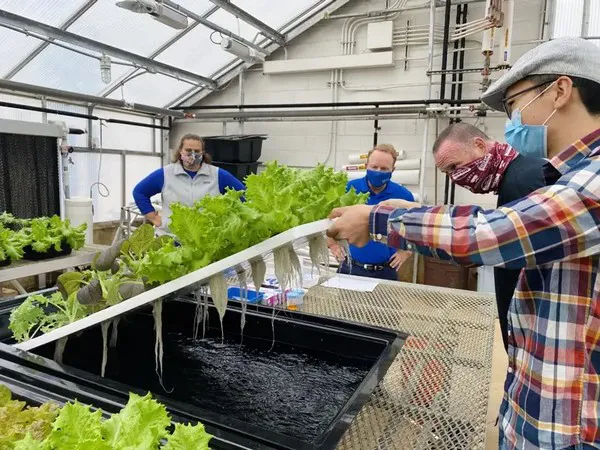
UD’s Qingwu Meng (right), Erik Ervin (center) and Abby Reeves (left) show healthy roots of hydroponic leafy greens to Chef Bill Wallen of Grain Craft Bar + Kitchen, which will purchase food grown on the College of Agriculture and Natural Resources Farm to use in its restaurants.
Meng’s Delaware Indoor Ag Lab (DIAL) works on soilless production of specialty food crops, including leafy greens, culinary herbs, microgreens, and fruiting crops. His research focuses on plant physiological responses in controlled environments like indoor vertical farms and greenhouses.
“This allows us to improve growth and quality traits of indoor crops efficiently by optimizing variables like light, temperature, and nutrients,” explained Meng.
The luxury of growing plants indoors can boost crop yield, taste, and nutritional value while shortening production cycles. The appeal is evident for many groups, including non-profits feeding people with food insecurities, local food devotees, and even astronauts.
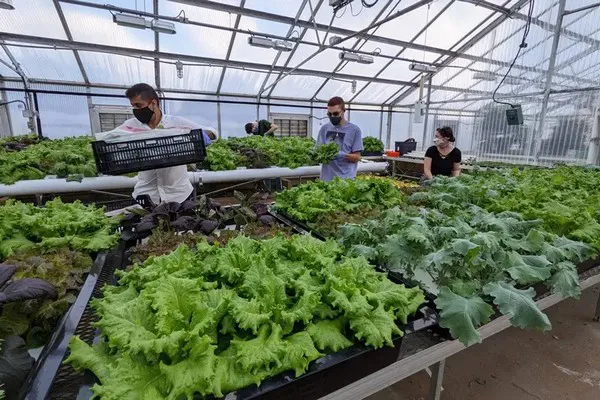
UD students Omar Abdullah (left), Ian Kelly (background), Joshua Gallin (center), and Zoe Bara harvest mature plants as part of their hydroponic food production course.
A student in UD’s plant and soil sciences graduate program, Emily Kennebeck is working on NASA-funded space crop production research with Meng. The researchers are investigating how hydroponic leafy greens grow under different light wavelengths and superelevated carbon dioxide levels found in space conditions. As a former NASA intern, Kennebeck is passionate about how we can grow food crops efficiently to supplement astronauts’ dietary nutrition in long-duration space missions. Her research uses plant growth chambers in DIAL.
“My time spent interning at the plant processing area at NASA’s Kennedy Space Center solidified my interest in furthering space crop production and its relevance for use on Earth,” said Kennebeck. “I was excited to learn I could continue doing plant research with space applications under Dr. Meng at the University of Delaware.”
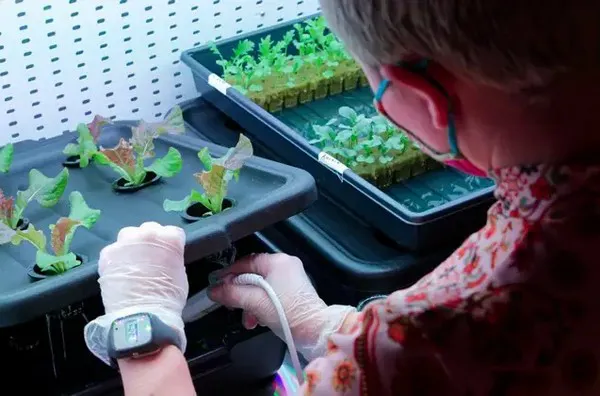
Plant and soil sciences graduate student Emily Kennebeck is working on NASA-funded space crop production research to investigate how hydroponic leafy greens grow under different light wavelengths and superelevated carbon dioxide levels found in space conditions.
At the undergraduate level, students learn to build hydroponic systems, grow food crops, manage nutrient solutions, and analyze economic viability in Meng’s Hydroponic Food Production course. Comprised primarily of sustainable food systems and plant science majors, undergraduates get the ultimate hands-on education as they build, test, and maintain their own greenhouse hydroponic systems, collecting and analyzing data as they grow and harvest crops. They also learn to diagnose problems like nutrient deficiencies during the production cycle.
“My favorite project was building the nutrient-film-technique system because it was a big, complicated system [where a stream of water containing dissolved nutrients is re-circulated],” said Ian Kelly, UD Class of 2024 member and sustainable food systems major. “We had to work as a team, and there was a lot of problem-solving involved in putting it together.”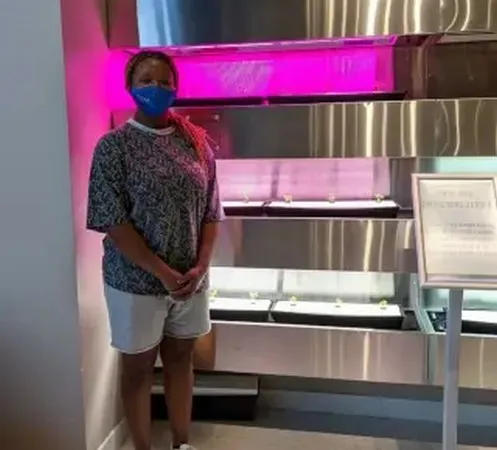
Sophomore Stefanie Severin is working on the herb garden at The Tower at STAR
Sophomore Stefanie Severin is working on the herb garden at The Tower at STAR, which is now fully functional with a wide array of culinary herbs to be used in cooking demonstrations and nutrition classes. UD’s research and degree programs captured the attention of VOLT Grow. The lighting company donated dimmable LED lights, which increase energy use efficiency to save on electricity compared with current high-pressure sodium lamps. These fixtures provide Meng and his students with advanced lighting capabilities for greenhouse plant research.
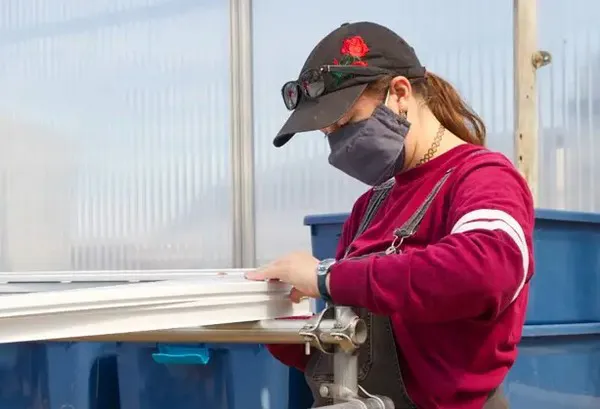
Sustainable food systems major Zoe Bara builds a nutrient-film-technique (NFT) hydroponic system.
“Horticulture research is vital in creating sustainable crop production and improving society’s well-being. Controlled-environment horticulture is at the forefront of this initiative, and we are looking forward to seeing how manipulating lighting with our LED grow lights will contribute,” said Casey Brynjolfsson of VOLT Grow. “We are excited to help expand the University of Delaware’s indoor horticulture research opportunities.”
For more information:
University of Delaware
www.udel.edu
